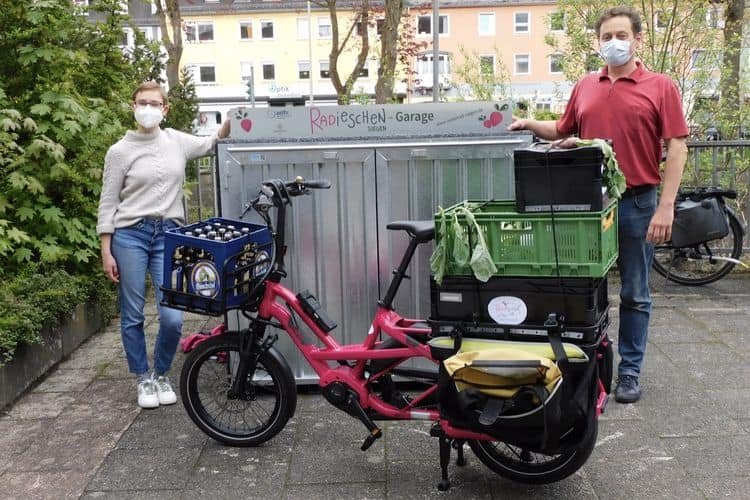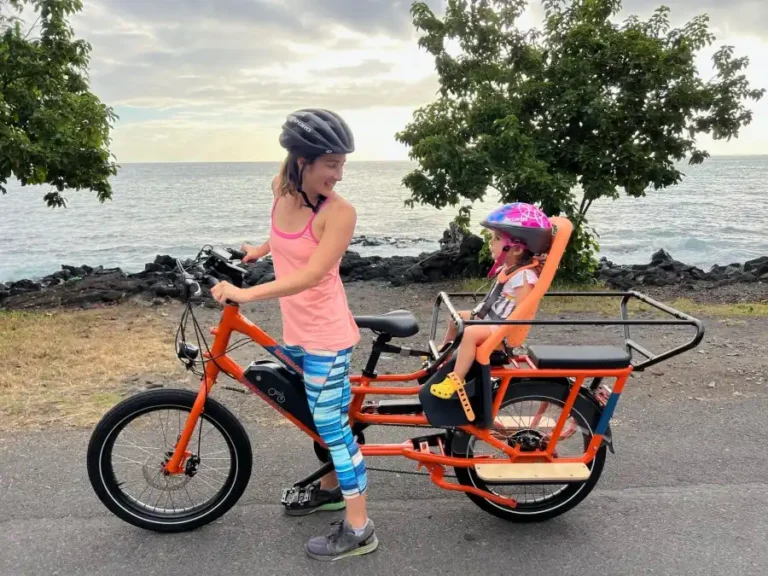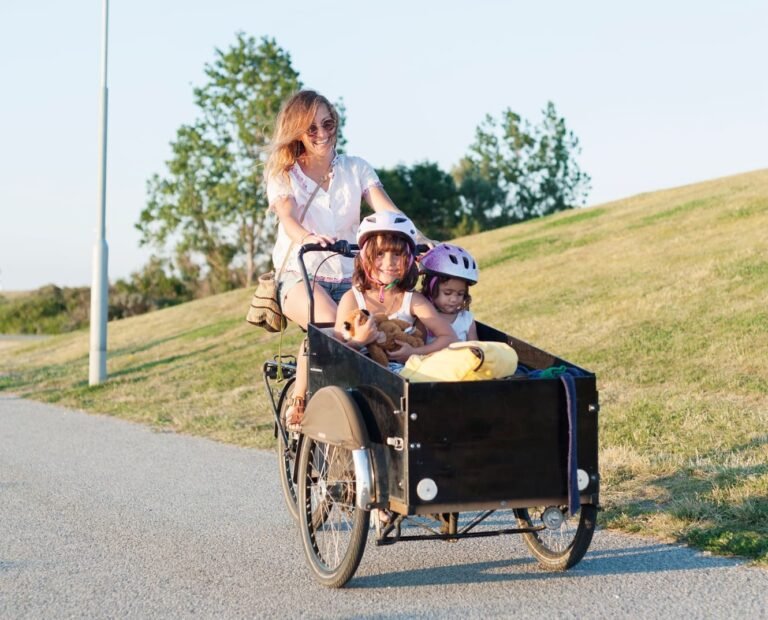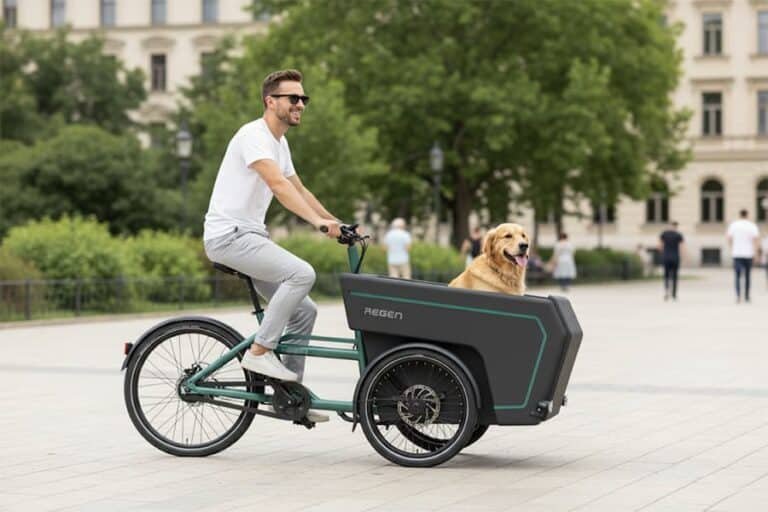Der deutsche Lastenradverleih boomt. Städte, Start-ups und Logistikunternehmen setzen zunehmend auf E-Lastenräder, um Emissionen zu reduzieren, Staus zu entlasten und die Mobilität zu verbessern. Diese Angebote kommen einer Vielzahl von Nutzern zugute – Familien, Pendlern, Unternehmen und Kommunen – und zeigen die Vielseitigkeit von E-Lastenrädern. Sie ersetzen nicht nur kurze Autofahrten, sondern tragen auch zu Shared-Mobility-Programmen, nachhaltiger Logistik und Nachbarschaftsinitiativen bei. In diesem Zusammenhang stechen zehn Schlüsselmarken bundesweit hervor. Dieser Artikel stellt, ohne sie zu bewerten, das Modell, die Dienstleistungen und die Geschäftsanwendungsfälle jeder Marke vor und bietet Einblicke für Beschaffungsteams, Behörden und Logistikplaner, die Lastenrad-Partnerschaften für öffentliche Programme oder kommerzielle Zwecke prüfen.
1. Sigo – Stationsbasiertes E-Cargo-Sharing
Sitz in Darmstadt, Sigo Sigo ist ein Pionier des stationsbasierten E-Cargo-Sharings und nutzt speziell angefertigte zweirädrige Elektro-Lastenfahrräder, die an induktiven Ladestationen angedockt sind. Seit der Markteinführung im Jahr 2020 betreibt Sigo ein B2B2C-Modell und arbeitet mit Wohnungsbaugesellschaften, Kommunen und öffentlichen Verkehrsbetrieben zusammen. Nutzer können Fahrräder über eine mobile App finden, entsperren, fahren und zurückgeben. Das Laden erfolgt nahtlos an der Station und ermöglicht eine Reichweite von etwa 50–70 km pro Ladung.
- Flotte & Technik: Custom-Bikes mit App-Steuerung und schnellem induktivem Laden.
- Anwendungsfälle: Ideal für öffentliche Pilotprojekte, Community-Sharing und lokalisierte Bereitstellung.
- Leuchtturmprojekt: Bayerns „Lastenrad“-Programm – 133 Fahrräder in 55 Städten, 95.000 zurückgelegte Kilometer, über die Hälfte der Fahrten ersetzten Autofahrten.
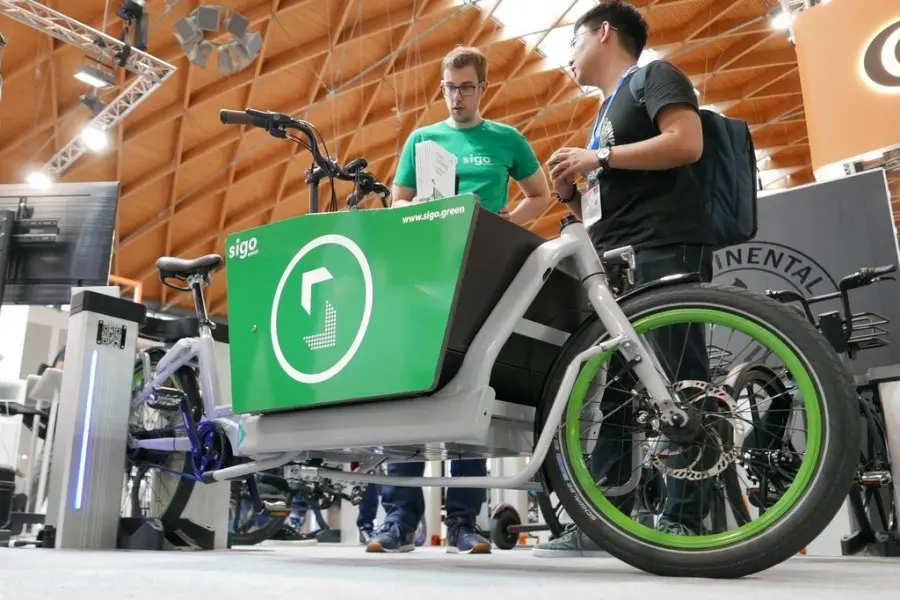
Das Modell von Sigo zeigt, wie robuste Infrastruktur, Automatisierung und Partnerschaften E-Cargo-Sharing zu einer skalierbaren städtischen Lösung machen. Es beseitigt Reichweitensorgen, minimiert den Wartungsaufwand und senkt den Personalbedarf. Beschaffungsverantwortliche können Sigo als Komplettanbieter betrachten – mit zuverlässigem Betrieb, klimafreundlichen Ergebnissen und integrierter Infrastruktur – und all das unter Berücksichtigung der Kriterien der Stadtplanung und des Fuhrparks. Dieses Konzept dient als Modell für Städte, die Mobilität mit minimalen Störungen und maximalem Nutzen für die Allgemeinheit einführen möchten.
2. Nextbike (Tier Mobility) – Integration von Lasten in ein Fahrradverleihnetz
Nextbike, unter Tier Mobility, verbessert das Fahrrad-Sharing in der Stadt durch die Integration von Lastenrädern. In deutschen Städten wie Leipzig und Köln hat Nextbike E-Lastenräder eingeführt (z. B. Urban Arrow Cargo L), zugänglich über dieselbe App und dasselbe Dockingsystem. Diese Strategie nutzt die vorhandene Infrastruktur und die Gewohnheiten der Nutzer und macht Lastenfahrräder zu einer sichtbarkeitssteigernden Erweiterung beliebter Bike-Sharing-Systeme.
- Preise: ~1 € Freischaltung, 0,05–0,10 € pro Minute.
- Anwendung: Ideal für Besorgungen mit der Familie, den Transport von Kindern oder leichte Stadtlogistik.
- Modell: Urban Arrow Cargo L für stabiles Fahren und Ladekapazität.
Integration reduziert den Aufwand: Abrechnung, Support und Stationsverfügbarkeit bleiben gleich. Sie erweitert die Flottenvielfalt mit minimalen Investitionen und ermöglicht Städten, die Nutzung von Lastenrädern durch gemeinsame Daten zu überwachen. Fahrer lernen die Nutzung kennen, ohne neue Apps oder Registrierungen zu benötigen. Kleine Flotten können jedoch eine eingeschränkte Verfügbarkeit und bedarfsgerechte Zuverlässigkeit bedeuten. Der Zugang nachts oder am Wochenende kann variieren. Der Ansatz von Nextbike zeigt jedoch, wie Städte Frachtoptionen schnell integrieren können – nicht durch den Aufbau separater Systeme, sondern durch die Modernisierung bestehender. Für Logistik- und Beschaffungsteams stellt dies eine risikoarme, leicht zugängliche Frachtoption innerhalb bekannter Rahmenbedingungen dar.
3. Kostenlose Lastenräder – Community-gesteuerte kostenlose Kreditvergabe
Der Freie Lastenräder Netzwerk – betrieben von NGOs und lokalen Vereinen – erstreckt sich nun 179+ deutsche Städte (Beispiele: Berliner fLotte, Kölner Kasimir). Ein Bürger kann ein Lastenrad online buchen, es an einem Standort in der Gemeinde abholen und nach Gebrauch wieder zurückgeben – kostenlos oder gegen Spende.
- Flotte: Manuelle und elektrische Lastenfahrräder, Dreiräder; bei Elektrofahrzeugen erfolgt die Aufladung durch den Benutzer.
- Anwendungsfälle: Besorgungen, Lagertransporte, Familienausflüge.
- Modell: Demokratischer Ansatz, der auf freiwilligen Gastgebern beruht.
Diese Programme fördern das Wohlwollen der Bevölkerung, stärken den gesellschaftlichen Zusammenhalt und fördern die Unterstützung nachhaltiger Mobilität. Einschränkungen bestehen in nichtkommerziellen Betriebszeiten, begrenzten Wartungsressourcen und der unterschiedlichen Standortvielfalt. Dennoch sind die sozialen Auswirkungen erheblich: Sie modellieren die Eigenverantwortung der Nutzer, reduzieren die Autoabhängigkeit und fördern die Nutzung öffentlicher Verkehrsmittel. Für Planer und CSR-Teams von Unternehmen können diese Programme kostenpflichtige Dienste ergänzen, den Ausbau der Infrastruktur pilotieren oder Bürger für gemeinsame Angebote gewinnen. Sie helfen auch, das Nutzerverhalten in kostengünstigen und barrierearmen Umgebungen zu testen.
4. CYCLE.co – Gewerbliches Abo-Leasing
CYCLE.eco (ehemals GetHenry) vermietet E-Lastenräder an Gigworker, KMU und Unternehmen mit monatlichen All-inclusive-Verträgen (159–199 €), die Wartung und Versicherung abdecken. Das Unternehmen ist in Berlin, Hamburg, Köln und darüber hinaus aktiv und verwendet Modelle wie Urban Arrow und Radkutsche Longtails – robust und für den intensiven Einsatz gebaut.
- Flotte: High-End-Longtail-Modelle mit Bosch-Antriebssystemen.
- Abonnement: Eine monatliche Gebühr beinhaltet Service, Versicherung und Teile.
- Anwendungsfälle: Lebensmittellieferung, Kurierlogistik, B2B-Transport auf der letzten Meile.
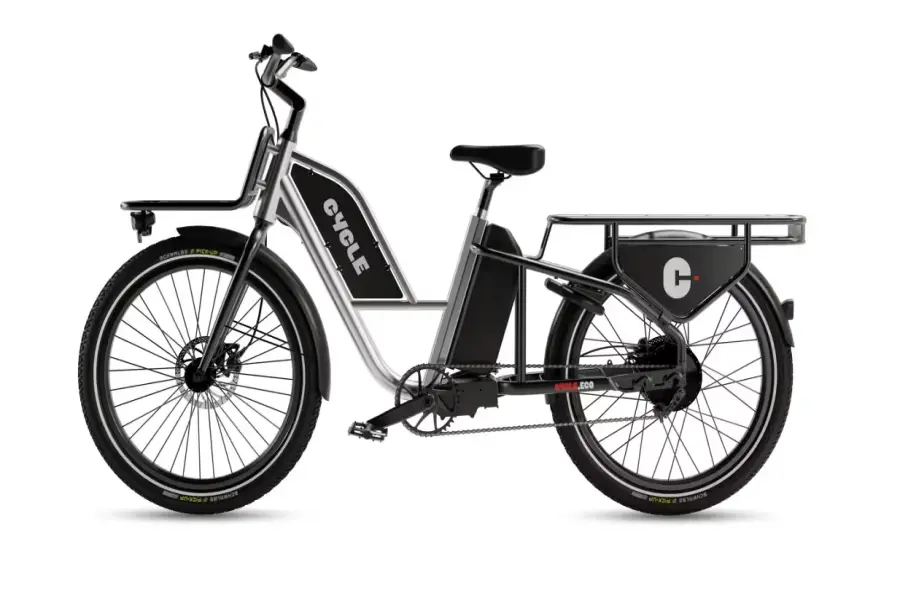
Unternehmen vermeiden hohe Vorlaufkosten und können ihre Flotten flexibel skalieren. Planbare Betriebskosten helfen bei der Budgetplanung. Wartungsunterstützung erhöht die Verfügbarkeit und reduziert Störungen. Der Einkauf kann Nutzung, Kosten und ROI überwachen. Die Verfügbarkeit kann bei hoher Nachfrage schwanken, und die monatliche Leasingrate kann bei starker Nutzung die Betriebskosten übersteigen. CYCLE.eco bietet eine nahezu schlüsselfertige Flottenlösung – ideal für Flotten ohne Fahrradwartungsteams oder Kapitaleinsatz.
Möchten Sie Ihre eigene Lastenfahrrad-Mietflotte aufbauen?
Regen hat Dutzenden von Erstbetreibern geholfen, technische und produktionstechnische Hürden zu überwinden. Unser Expertenteam erleichtert Ihnen die Planung, Produktion und Skalierung einer mietfertigen Flotte – alles unter Ihrer Marke.
5. ListNRide – Aggregator für Privat- und Ladenmieten
ListNRide fungiert als Plattform, die private Vermieter und kleine Verleiher verbindet und bietet rund 80–90 Lastenräder deutschlandweit. Gelistet sind E-Cargo-Modelle wie Bakfiets und Babboe, die stunden- oder tageweise vermietet werden können – attraktiv für Familien, Touristen oder einmalige Projekte.
- Flottengröße: Aktive Angebote in Groß- und Mittelstädten.
- Anwendungsfälle: Kurzfristige Familienurlaube, Veranstaltungen, Tests.
- Beispiele: Bakfiets für Umzugskartons oder Kinder.
ListNRide bietet Flexibilität – keine langfristigen Verträge oder Systembindungen. Die Qualität variiert, aber ListNRide eignet sich ideal für Beschaffungspiloten, Tourismuspartner und soziale Dienste, die spontan Lastenräder anbieten. Bei Einzelmieten kann der Preis höher sein. Betreiber erhalten über die Plattform Sichtbarkeit und Buchungsinfrastruktur, ohne in ein eigenes Webportal investieren zu müssen. ListNRide ist ein wertvoller Einstiegspunkt, um die Nachfrage zu testen oder spontane Logistik anzubieten.
6. Urban Arrow (über Händler) – Leasing und Flottenverkauf
Urban Arrow Fahrräder – wie das Cargo L Performance Und Pritsche L– sind das Hardware-Rückgrat vieler B2B-Flotten und Logistikabonnements. Händler in ganz Deutschland bieten Leasing und Full-Service-Flottenmanagement an und unterstützen bei Flotteneinführung, Wartung und Upgrades.
- Modelle: Cargo L mit Kofferaufbau, Flatbed L für schwere Beanspruchung.
- Anwendungsfälle: Lieferung, Autovermietungen, öffentliche Flotten.
- Unterstützung: Händler-Servicepakete und Herstellergarantien.
Obwohl Urban Arrow nicht direkt vermietet, stellt das Unternehmen Vermietern und Flottenbetreibern hochwertige Lastenfahrräder zur Verfügung. Die Leistung eignet sich hervorragend für geschäftliche Anforderungen, die Navigation im Stadtverkehr und den Transport von Nutzlasten. Leasing vermeidet Eigentumsrisiken und Lagerinvestitionen. Auch Städte profitieren, da sich diese Fahrräder in öffentliche Programme oder Flottenumbauten integrieren lassen. Beschaffungsagenturen, die Hardwareoptionen prüfen, werden den richtungsweisenden Ruf von Urban Arrow und die umfassende Händlerunterstützung zu schätzen wissen.
7. Donkey Republic – Pilot-Frachtimplementierung
Eselrepublik hat in Berlin und ausgewählten Städten Cargo-Modelle in seine stationslose Miet-App aufgenommen. Diese mit Kindersitzen und Cargo-Boxen ausgestatteten Fahrräder lassen sich nahtlos in die Standard-Fahrradangebote der App integrieren – eine spezielle Anmeldung oder Kaution ist nicht erforderlich.
- App-basiertes Entsperren: Vertrautes Erlebnis für Fahrer.
- Anwendungsfälle: Familienausflüge, Kinder zur Schule bringen, kleine Einkäufe.
- Nutzen: Unverbindliche Adoption ohne Verpflichtung.
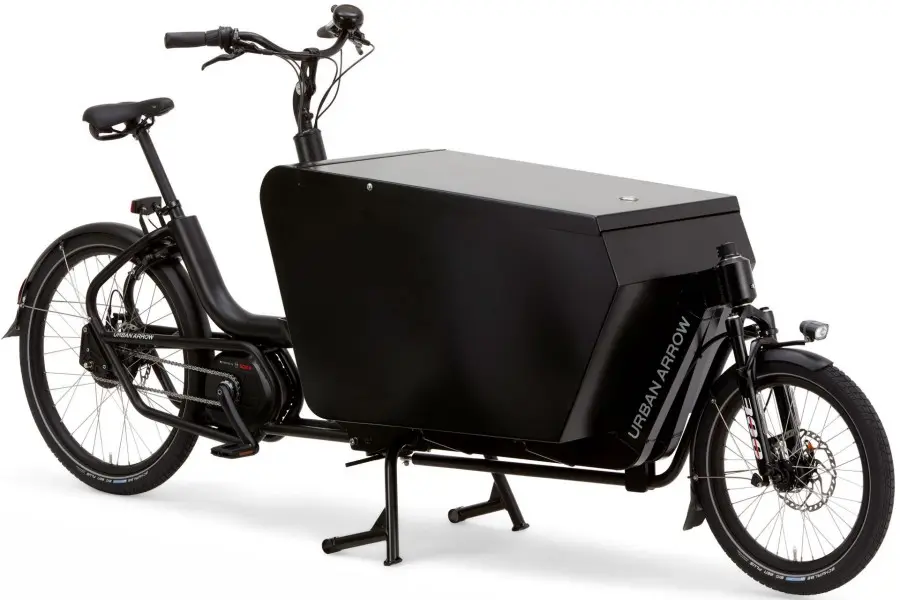
Donkeys Ansatz senkt die Einstiegshürden und ermöglicht Familien, Lastenfahrräder mühelos auszuprobieren. Die App-Integration ermöglicht eine unkomplizierte Abrechnung und Standortverfolgung. Allerdings sind die Flotten klein, die Verfügbarkeit unsicher und der Service im Vergleich zu stationsbasierten Mieten eingeschränkt. Donkey eignet sich für Pilotprojekte im Tourismus und in der Mikromobilität und ist ideal für Beschaffungsmanager in Städten, die Lastenfahrräder in bestehende Shared-Mobility-Angebote integrieren möchten.
8. Call a Bike (DB) – Pilot Cargo für Dateneinblicke
Rufen Sie ein FahrradDas von der Deutschen Bahn betriebene Lastenrad-Projekt führt in Zusammenarbeit mit Städten wie Frankfurt gelegentlich Lastenrad-Tests durch. Die Fahrräder werden in die bestehende Infrastruktur integriert und sind in Forschungsprojekte eingebunden, die das Nutzerverhalten und die Fahrtmuster untersuchen.
- Merkmale: Kindersitze, Heckboxen, App-Integration.
- Anwendungsfälle: Tests zur städtischen und verkehrsbezogenen Mobilität.
- Ziel: Datenerhebung für die Politikgestaltung.
Call-a-Bike-Pilotprojekte helfen Behörden, Nachfrage, Reiseverhalten und Fahrtensubstitution ohne große Investitionen zu bewerten. Sie veranschaulichen die Rolle von Frachten in multimodalen städtischen Verkehrssystemen. Der Nachteil ist, dass die Verfügbarkeit auf Pilotprojekte beschränkt und nicht öffentlich ist. Beschaffungsverantwortliche und Planungsbehörden können die Ergebnisse jedoch nutzen, um größere Investitionen oder die Skalierung des Systems zu rechtfertigen.
9. Frachtfreunde – NGO Logistikflotte
Frachtfreunde ist eine gemeinnützige Organisation, die ihre Lastenfahrräder an NGOs und Sozialunternehmen spendet und so kostengünstige, nachhaltige Logistik ermöglicht. Die Fahrräder – oft robuste Dreiräder – werden langfristig für gemeinnützige Missionen, Eventlogistik oder Gemeinschaftsprogramme verliehen.
- Flotte: Elektrische Lastendreiräder, Tragfähigkeit 120+ kg.
- Anwendungsfälle: Öffentlichkeitsarbeit, Wohltätigkeitsveranstaltungen, Hilfslogistik.
- Finanzierung: Crowdsourcing-Spenden und Zuschüsse.
Dieses Modell erweitert Lastenfahrräder auf unterfinanzierte Sektoren ohne kommerzielle Einschränkungen. Herausforderungen sind die Finanzierung der Instandhaltung und die Gewährleistung der Rechenschaftspflicht. Dennoch zeigt es, wie Fahrräder eine logistische Basislösung sein können. Kommunen können mit NGOs wie Frachtfreunden zusammenarbeiten, um die kommunalen Kapazitäten zu stärken und Nachhaltigkeitsziele zu erreichen, während Flotten ihre praktische Fähigkeit unter Beweis stellen, bürgerschaftliche Missionen zu unterstützen.
10. Velogista – Fahrradkurierdienst
Velogista, ein Berliner Kurierdienst, betreibt Vertragslogistik mit elektrischen Lastendreirädern. Mit wetterfesten Ladebehältern und einer Ladekapazität von über 250 kg unterstützt ihr Modell Unternehmen, die flexible und umweltfreundliche Lieferungen benötigen, ohne einen eigenen Fuhrpark zu besitzen.
- Service: B2B-Vertragslieferung mit geplanten Abholungen.
- Flotte: Maßgefertigte Lastendreiräder mit GPS, modularen Behältern.
- Zielkunden: Einzelhändler, Büros, Event-Lieferketten.
Velogista eliminiert das Flottenmanagement und die Emissionsbelastung und ermöglicht Kunden so die Umverteilung interner Ressourcen. Das Unternehmen bietet Zuverlässigkeit und messbare Nachhaltigkeitsvorteile. Herausforderungen sind Fahrerfluktuation und Wetterschwankungen. Dennoch bietet Velogista ein vollständig ausgelagertes, CO2-freies Liefermodell, das für Unternehmenslogistikplaner und Nachhaltigkeitsbeauftragte relevant ist.
Fazit: Strategische Erkenntnisse für Stakeholder
Die weitläufige Lastenradlandschaft Deutschlands bietet maßgeschneiderte Lösungen für den öffentlichen und gewerblichen Einsatz. Unter den zehn Marken:
- Sigobietet robustes stationsbasiertes Teilen mit automatischem Laden.
- Nextbike Und Rufen Sie ein Fahrrad Fracht in Stadtnetze integrieren.
- Freie Lastenräder Und Frachtfreunde Zugang für Basisorganisationen und gemeinnützige Organisationen schaffen.
- CYCLE.eco, Velogista, Und Urban Arrow Leasing erfüllen die Logistikanforderungen Ihres Unternehmens.
- ListNRide Und Eselrepublik Unterstützung von Verbraucherpiloten und Tourismuseinstiegen.
Zu den wichtigsten Überlegungen für Beschaffungs-, Richtlinien- oder Logistikmanager zählen:
- Infrastrukturbereitschaft– Stations- vs. docklose Systeme.
- Service-Level-Anforderungen– Kurzzeitzugriff, Abonnements oder Logistikunterstützung.
- Wartungsmodelle– Full-Service-Leasing unterscheidet sich von gemeinschaftlich betriebenen Programmen.
Jedes Modell bietet skalierbare, nachhaltige Mobilität im Einklang mit Vorschriften und Nachhaltigkeitsvorgaben. Mit dem wachsenden Interesse an Emissionsreduzierung haben sich Lastenräder vom kleinen Service zum gängigen städtischen Verkehrsmittel entwickelt. Deutsche Anbieter vereinen Technologie, bürgerschaftliches Engagement und wirtschaftliches Denken und bieten damit einen Wegweiser für andere Länder, die Lastenräder in ihre Mobilitätsökosysteme integrieren möchten.
Quellen:
- Sigo – Stationsbasiertes Laden und B2B2C-Sharing-Modell sigo.green
- Bayern-Projekt „Lastenrad“. – Bereitstellungsergebnisse und Nutzungsdaten sigo.green/news/lastenrad-bayern
- Nextbike (Tier Mobility) – Frachtintegration und App-basiertes Teilen nextbike.de
- Kostenlose Lastenräder (Frachtfreunde) – Community-gesteuertes kostenloses Verleihnetzwerk lastenrad.frachtfreunde.de
- CYCLE.eco (ehemals GetHenry) – Details zum Abonnementplan und Flottenabdeckung cycle.eco
- ListNRide – Aggregator-Plattform mit Lastenrad-Angeboten listnride.com
- Urban Arrow – Nutzung in Leasingprogrammen über deutsche Händler urbanarrow.com
- Eselrepublik – Piloteinsätze von Lastenfahrrädern Eselfahrrad
- Call a Bike der Deutschen Bahn – Pilotprojekte für Lastenräder callabike.de
- Frachtfreunde – NGO-Logistik- und Lastenradspenden frachtfreunde.de
- Velogista – Cargo-Trike-Kurierdienstmodell velogista.de



